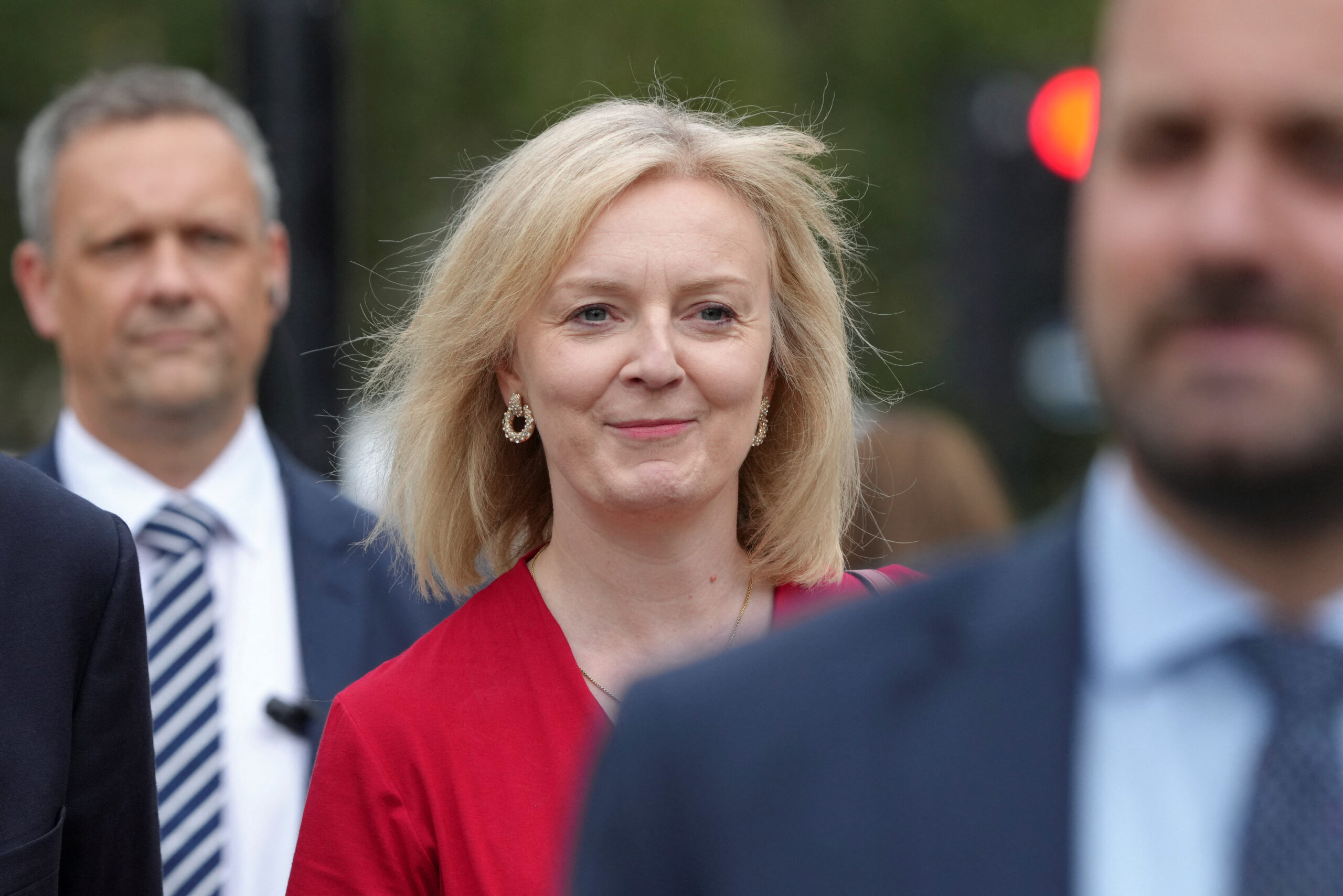Laugh at Liz Truss, But Tory Radicals Are Playing the Long Game
The centre won't hold - and they know it.
by James Meadway
19 September 2023

Liz Truss’ attempted return to the centre-stage of British politics this week has been met with a great deal of derision. This is hardly surprising, given the extraordinary events of her brief premiership in September and October last year.
But it’s worth stepping back from the immediate, near-universal jeering and thinking about the political project Truss is part of building. Labour will almost certainly win the next election. The smarter Tories are already planning for a period in opposition, and thinking about how to return themselves to power. What Truss is doing right now is about trying to set up an argument for the next five years or more.
Truss herself is an unsympathetic character, apparently unwilling to admit any responsibility for what happened whilst she was prime minister, and sticking rigidly to the free market dogma that has defined her adult political life. For Labour’s leadership, her prominence is a gift: a walking, talking reminder of ‘Tory incompetence’ in those few days last year when the pound plunged and mortgage costs soared. The party will make as much use as it can out of her up to the next election and beyond – and can you really blame it?
But the rest of us should be a little more canny. Truss’ unhappy tenure isn’t only being used for party political gain. It also lets more ‘moderate’ Tories deflect responsibility for Britain’s real economic problems. Look, for instance, at how Rupert Harrison, George Osborne’s economic advisor and one of the key architects of the utter calamity of austerity, leapt onto the anti-Truss bandwagon, criticising her “brass neck” for “what happened”, with no “genuine acknowledgement of the real mistakes that were made”.
In a brass neck contest, Harrison would win by a country mile. Yes, Truss’ ‘mini-budget’ caused a sharp rise in government borrowing costs – but those borrowing costs are now higher than they were when she was in No. 10, and mortgage rates have spiked above their Truss levels. Austerity, on the other hand, has cost the UK £500bn of public spending since 2010, while real wages have dropped. Austerity was a catastrophic failure, damaging public services, weakening productivity and undermining living standards. Harrison and others responsible for it have never acknowledged anything of the sort. Quite the opposite: Osborne gets feted as some sort of jovial elder statesman.
There’s a not-too-subtle undertone to this. Behind the jeering at ‘Trussonomics’ is the hint that any kind of radicalism is bad and dangerous. This includes Corbynism, of course: Truss, the argument goes, showed that ‘unfunded’ spending unsettles the markets, and that nothing must be done to rock the boat.
This is a parody of what Corbynism offered, with shadow chancellor John McDonnell and his team taking great pains to ensure their manifestos were fully costed, and carefully laying-out plans for government. Truss and Kwasi Kwarteng did the opposite – charging into office with a move-fast-and-break-things approach that provoked a market panic and, ultimately, a Bank of England intervention that removed both from power.
The real lesson from Truss’ premiership isn’t that radicalism can’t work, it’s that if you want to be radical, you need to be smart, prepare the ground, and pick your battles carefully. This is, in fact, what Truss herself says she should have done, hindsight being a wonderful thing. But with a Labour election victory now all but guaranteed, her intervention should be seen as helping to lay the foundations for what comes after 2024.
Labour will inherit an economic situation more comparable to the crisis years of 1974 than 1997’s sunlit uplands – only with added climate change and a major war in Europe. The party’s current proposals fall short of addressing this miserable reality, failing to tax the richest and promise the necessary spending on our public services. Upon hitting further crises, then, a Labour government could become rapidly unpopular – at which point free market ideologues hope their narrative of the ‘failing centre’ will be ready to go.
Truss is just a placeholder; they’ll soon find some other, less tarnished figurehead. But she’s laying the groundwork, carefully creating the political space for others to exploit in the near future. And if there isn’t an alternative narrative, it’s a fair bet they’ll win.
James Meadway is an economist.


